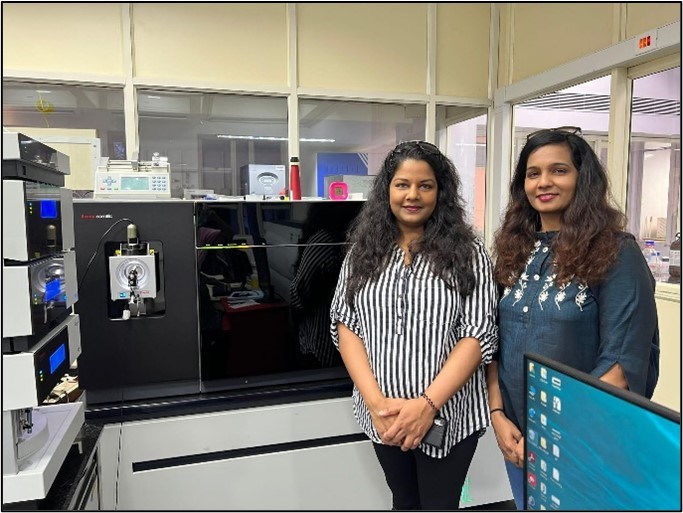New study comparative metabolomic and proteomic profiling of human carotid atherosclerotic plaque in two Cross-Cultural population

RGCB facility for proteomics, lipidomic and metabolomics
Researcher from Örebro University will compare metabolomic and proteomic profiling of human carotid atherosclerotic
A collaboration study together with two institutions in India:
Vascular and Thoracic Surgery department at Sree Chitra Tirunal Institute for Medical Sciences and Technology (SCTIMST), India: The collaboration will help to establish a human carotid plaque cohort from patients undergoing carotid endarterectomy in India.
Cardiovascular Disease & Diabetes Biology department at Rajiv Gandhi Centre of Biotechnology (RGCB), India: The collaboration will facilitate us to use the lab facility to perform metabolomic and proteomic studies on the human carotid plaque tissue in the newly designed patient’s cohort.
Cardiovascular diseases (CVDs) is the single largest contributor of mortality and morbidity worldwide. Although the deaths due to CVDs have reduced in several western countries, CVDs continues to be the leading cause of death in the western world, including Sweden. In the EU economy, the estimated cost due to CVDs are around EUR 169 billion per year, which is an average of EUR 372 per inhabitant.
India accounts for one-fifth of CVDs associated death worldwide especially in younger population. Within India, the rates of CVDs, blood pressure and increased cholesterol levels are highest in states of Kerala, Punjab and Tamil Nadu.
Given the high burden of CVDs, prevention through identifying and mitigating risk factors is a priority. Atherosclerosis is an underlying cause of CVDs, and is an inflammatory disease, characterized by narrowing of arteries due to the accumulation of lipids and inflammatory cells and fibrotic processes. To date, the disease remains a major threat to human health worldwide despite of the clinical success in lipid lowering and anti-inflammatory therapeutic strategies. Moreover, the understanding of metabolic process within the plaques has been limited.
The specific aims of the collaboration project are:
- To identify metabolic signatures of high-risk atherosclerotic plaque in study groups from Sweden and India. We aim to identify common subsets of metabolite that are associated with high-risk atherosclerotic plaque in both study group.
- To compare the metabolic and inflammatory profiles of carotid tissue with and without plaque (control).
- To examine the association of metabolic profile of the plaque with increased inflammation?
The project will be carried out at the department of medical science, Örebro University by researcher Geena Paramel, E-post: geena.paramel@oru.se,
Telephone: 019-303473, 0727863503
